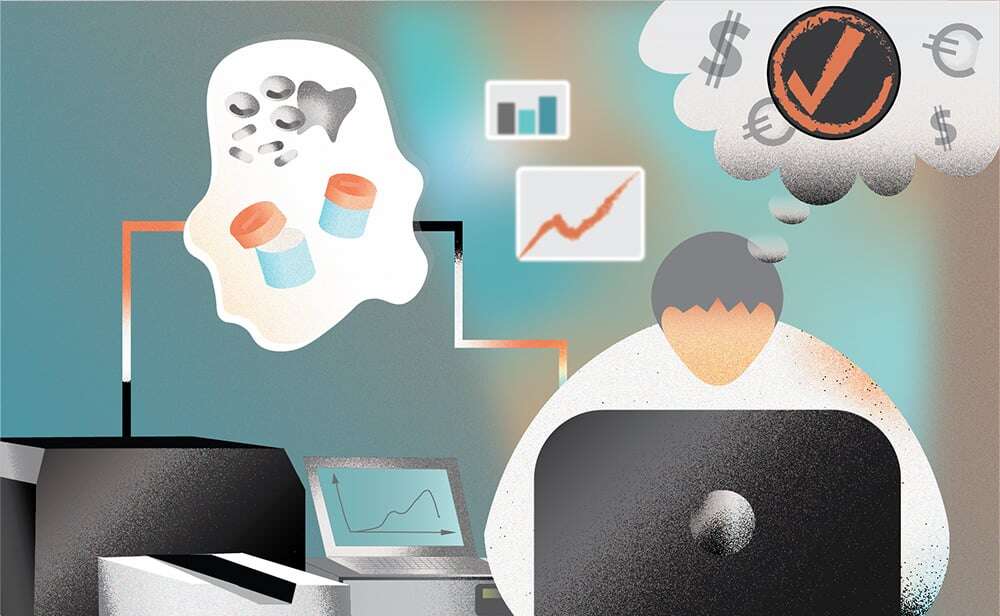- Home >
- Learning centre >
- Science blog >
- Use our demo process to get data for your grant
Use our demo process to get data for your grant
11th May 2022

Novel data can be an impressive addition to your upcoming grant
High-quality preliminary data is essential to getting funding to acquire an instrument. If you think microcalorimetry could be a good fit for your lab and you need preliminary data, Symcel has got you covered. Our demo process is designed with grant writing and internal budget applications in mind so that you can get data quickly with expert help and analysis from our dedicated team of application scientists. Here’s how we can help.
We run many internal demos in our lab in Stockholm. Internal demos can be run completely remotely in which case, you send a sample and we run the experiment and analyse the data for you. However, in most cases, labs send over a technically qualified researcher to prepare their samples and run the experiments. We recommend this approach as it is much easier to assess the feasibility of running experiments in the future when someone from your lab has hands-on experience operating the calScreener and running an experiment.
The benefits of a demo for your grant application
Our demo processes are designed with grant writing in mind. We want academic and company labs who run demos to be successful in their grant and budget applications and we are here to help every step of the way.
To begin with, we help design the experiments that you will run during your demo. This is a way of ensuring feasibility, but also using our experience with the technique to suggest experiments that will give you the impact you desire.
If you run the demo remotely, we will run the experiment for you. However, if you send a scientist, we will be on hand to make sure the process goes smoothly, and that precious time spent in the lab goes towards getting usable results.
The calScreener produces a lot of data. It is a very sensitive instrument that can generate time-resolved metabolism measurements spanning over several days if you need it to. If you are new to this kind of data, the processing and analysis can be a challenge. At Symcel, our application scientists are on hand to train scientists and go through the data analysis pipeline. No prior software or skills are required, we have our very own software that is very user-friendly.
Of course, it’s not just about crunching the numbers, analysis is as much about interpretation as data processing. We are also on hand to offer suggestions and hypotheses for what the data really mean and how they can be used in your grant application and publications.
After the demo is over, our application scientists will produce a detailed report with all of the information needed to be included in the grant. We’ll include methods, results and high resolution, publication quality figures.
The demo process
The demo process begins with a simple application. You fill out this form which will then be evaluated by a member of our team.
Demo Request Form
Once we’ve evaluated your application, we’ll arrange a conference call with our team to talk through your ideas and share more information about the technology. At this stage we are looking to make sure that we are a good fit for one another. It’s essential that we explain the benefits and the limitations so that you have a realistic idea of what to expect. It’s also important for us to know that you have carefully considered how metabolic measurements would be useful to your experimental system and how it would strengthen your grant application or paper.
After this conference call, we’ll evaluate the suitability of the project and make suggestions on how to proceed. If you are successful and would like an internal demo, we’ll schedule it at this stage and make arrangements for your visit to our facility in Stockholm.
If you’d prefer to have an external demo and take a calScreener to your lab, we’ll have to do some further qualification with you. This is to make sure that there are several planned outputs for the demo such as conference posters, publications and specific grants or already a set budget to purchase the instrument.
To plan for the demo, we can arrange storage for your samples before you arrive if you don’t bring them with you. Once you arrive, you or your lab member will be trained and guided through the experimental process by our application scientists with backgrounds in a variety of different disciplines.
As we previously mentioned, the demo also includes extensive data analysis as well as a report containing all of the information needed for your grant.
Who should apply
The application process is short but not everyone should apply. However, you do not need to have funding for a calScreener before you book a demo. All that we ask is that you are actively looking for opportunities to apply for funding and can demonstrate this when we go through our qualification process.
Summary
If you think microcalorimetry is something that would add value to your lab then applying for funding is a good way to finance the purchase of a Symcel calScreener. In this case, your success in a funding round is also our success and we want to help you in every way we can. Our demo process has been specifically designed to help you get all of the data that you need to make your next grant application as strong as it can possibly be.

STAY UP-TO-DATE
Subscribe to our newsletter and stay up to date with the latest news and updates